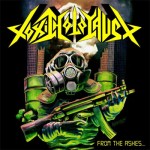 Toxic Holocaust – From the Ashes of Nuclear Destruction: This is not bad music, but it’s an imitation of something in the rearview mirror, which is hard enough without a tendency to combine the worst aspects of several genres. The songs are chaotic like American thrash, but then like German speed metal, they’re very chanty with lots of chorus activity and not much deviation from that rhythm and the chord progression that carries it. In fact, this was the kind of music that back in the 1980s, drove people to Metallica and Slayer for more of a musical experience. Most of what you get with Toxic Holocaust is like a suburban rap album, which is to say that you hear the vocals and pick up their rhythm, and then there’s distracting stuff going on in the background. Whatever the chorus is gets hammered in your brain because it repeats again and again (and again, and again). Riffs are very similar, and derive from identifiable archetypes in classic speed metal songs. Like most of those bands in the 1980s, it’s hard to construct an argument against this. It isn’t musically incompetent, and it’s roughly of the same style, and it’s definitely metally as opposed to the alt-indie-nu crowd. However, really the question is what’s missing, and we can’t spot it because neither it nor an analogue is there. This band lacks purpose. Songs are there to be like other songs, not to express something unique. While nostalgia is neat and all, this puts Toxic Holocaust in the same camp as the big pop bands, who are just making songs to sound like other successful songs, be catchy and make people dance.
Toxic Holocaust – From the Ashes of Nuclear Destruction: This is not bad music, but it’s an imitation of something in the rearview mirror, which is hard enough without a tendency to combine the worst aspects of several genres. The songs are chaotic like American thrash, but then like German speed metal, they’re very chanty with lots of chorus activity and not much deviation from that rhythm and the chord progression that carries it. In fact, this was the kind of music that back in the 1980s, drove people to Metallica and Slayer for more of a musical experience. Most of what you get with Toxic Holocaust is like a suburban rap album, which is to say that you hear the vocals and pick up their rhythm, and then there’s distracting stuff going on in the background. Whatever the chorus is gets hammered in your brain because it repeats again and again (and again, and again). Riffs are very similar, and derive from identifiable archetypes in classic speed metal songs. Like most of those bands in the 1980s, it’s hard to construct an argument against this. It isn’t musically incompetent, and it’s roughly of the same style, and it’s definitely metally as opposed to the alt-indie-nu crowd. However, really the question is what’s missing, and we can’t spot it because neither it nor an analogue is there. This band lacks purpose. Songs are there to be like other songs, not to express something unique. While nostalgia is neat and all, this puts Toxic Holocaust in the same camp as the big pop bands, who are just making songs to sound like other successful songs, be catchy and make people dance.
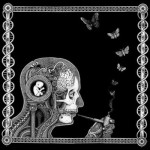 Soen – Cognitive: Somehow, people say they’re doing what they’re afraid they’re not doing. Soen is nu-progressive metal, which means that it’s basically a very vocals-intense, “passionate” form of indie rock — think post-1990s style drama-intense male vocalist nonsense — with occasional metal riffs. If you don’t mind the discount Morrisey style vocals, you will not be immediately set off by this album, but the grim fact is that this style of music is easy to produce and bands are a dime a dozen. These “deep” vocals end up sounding more like someone belting out over-emphatic drama, mainly because once you strip aside the technique, there’s little actual variation. The metal riffs can be surprisingly good but not original. It’s amazing how people have been making this style of music for decades and yet it doesn’t occur to each generation that maybe, just maybe, this stuff isn’t as new and revolutionary as it claims. If you like regular rock music, and want it to have more soul-searching vocals that override the other form factors, as in Coldplay, you’ll really dig this. If you’re looking for metal, you’ll end up fast-forwarding between the metal riffs and have a 2.3 minute album here.
Soen – Cognitive: Somehow, people say they’re doing what they’re afraid they’re not doing. Soen is nu-progressive metal, which means that it’s basically a very vocals-intense, “passionate” form of indie rock — think post-1990s style drama-intense male vocalist nonsense — with occasional metal riffs. If you don’t mind the discount Morrisey style vocals, you will not be immediately set off by this album, but the grim fact is that this style of music is easy to produce and bands are a dime a dozen. These “deep” vocals end up sounding more like someone belting out over-emphatic drama, mainly because once you strip aside the technique, there’s little actual variation. The metal riffs can be surprisingly good but not original. It’s amazing how people have been making this style of music for decades and yet it doesn’t occur to each generation that maybe, just maybe, this stuff isn’t as new and revolutionary as it claims. If you like regular rock music, and want it to have more soul-searching vocals that override the other form factors, as in Coldplay, you’ll really dig this. If you’re looking for metal, you’ll end up fast-forwarding between the metal riffs and have a 2.3 minute album here.
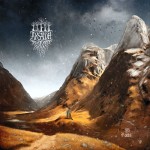
Arsaidh – Roots: another black metal/post-black metal hybrid. What is it? A mixture of techniques, with no purpose. It’s not bad except that since none of it connects to a greater organization scheme than designing a song based on template, it all has the same intensity and emotional level, which makes it a tedious drone. Again, look at any part: it’s well done. Zoom out, look at the whole: who cares? It’s like a fractal made of one giant circle in that anywhere you look, the end result is pointing back to the start. Nothing is learned between inception and conclusion. It’s oddly evocation of this disassociative time because it approximates the mental state of someone who is watching life go on by and realizes it’s all the same stuff, but has no energy to do better, so joins in emulation and hopes to not be noticed. Did you ever read Vaclav Havel’s “Power of the Powerless”? It’s easy to put up some token sign of assimilation, like a state slogan or an indie-metal album, and to fit in. That way, you expend almost no energy and yet are not subject to standing out and having to face criticism for having gone your own way.

Buckshot Facelift – Elder’s Rasp: From the newer school of grindcore, which combines the frenetic and ecclectic nature of bands like Brutal Truth with the “grab bag of anything goes riffs” and tendency toward distraction rather than continuity that is a hallmark of tech-deth and other metalcore-influenced styles, Buckshot Facelift create a faithful exploration of this style. Fast and chaotic, it shifts riffs regularly and with intensity, but could use a bit more variation in the tempo shift department. Riff composition uses techniques from the last 40 years of metal, punk and rock, with a tendency toward shifts between rock and punk riffs before drifting into metal to work up tension for a change. Vocals are like a chihuahua on methamphetamine that is reading a letter to the editor from a grandmother abandoned at the bottom of a deep well by her ungrateful children. If this subgenre appeals to you, this band is better than average but middle-of-the-road stylistically.
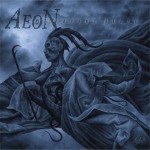 Aeon – Aeons Black: Sounding like later Deicide with influences from the mid-paced death metal of the last decade, Aeon creates some compelling rhythms and uses a heavy NYDM influence through harmonic guitar squeals and repetitive downstroke rhythms. The result is “heavy,” but melody is used only as an effect, and the album is assembled of many similar pieces that lacking a gestalt, flow together into catchy wall paper. The result is thankfully somewhat death metal, but has a newer metal influence, and through its lack of focus, combines different forms and styles into one giant approximation that has no really distinct point of view. It’s like a xerox of a xerox of a photograph of Silly Putty(tm) imprint of the original. While it isn’t incompetent, and has some moments of inspired musicality, it has no content that it manages to express and so it feels like a disorganized detour into the late 1990s, perhaps death metal being used to make an infomercial. I can see the juice machines, instant waffle makers, hair braders, etc. now, because that’s what this album feels like: the shelves of a death metal store, arranged in no particular order, as you walk past and then go out the door, not having found anything worthy of permanent acquisition.
Aeon – Aeons Black: Sounding like later Deicide with influences from the mid-paced death metal of the last decade, Aeon creates some compelling rhythms and uses a heavy NYDM influence through harmonic guitar squeals and repetitive downstroke rhythms. The result is “heavy,” but melody is used only as an effect, and the album is assembled of many similar pieces that lacking a gestalt, flow together into catchy wall paper. The result is thankfully somewhat death metal, but has a newer metal influence, and through its lack of focus, combines different forms and styles into one giant approximation that has no really distinct point of view. It’s like a xerox of a xerox of a photograph of Silly Putty(tm) imprint of the original. While it isn’t incompetent, and has some moments of inspired musicality, it has no content that it manages to express and so it feels like a disorganized detour into the late 1990s, perhaps death metal being used to make an infomercial. I can see the juice machines, instant waffle makers, hair braders, etc. now, because that’s what this album feels like: the shelves of a death metal store, arranged in no particular order, as you walk past and then go out the door, not having found anything worthy of permanent acquisition.
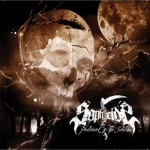
Sophicide – Perdition of the Sublime: The modern style of metal throws a whole bunch of metal styles into a salad shooter and gives it a spin. What tumbles out is properly called metalcore because its songs are in the “variety show” form of late hardcore, but its riffs come from random metal genres. Sophicide does a better job of it than most by using rhythm to arrange riffs in roughly verse-chorus positions, meaning that you can easily follow what’s going on without much mental stress. However, the result is like most later hardcore designed around the concept of having lots of options that are incompatible with one another. They think this makes you avoid boredom, but because there’s no plan, each song devolves to the lowest common denominator. As a result, there’s not much listening to be had here unless you really fanatically love metalcore. This band is more interesting than your average metalcore, but still conveys that basic antipathy to organized expression that comes from confused times, and doesn’t help us resolve that confusion. In fact, the tendency of the listener here is to pay less attention the less organized the music gets, which is why people who hear metalcore frequently are unable to express an opinion about it. “It was there,” is all they can say, and in this style, that’s all we’re left with.
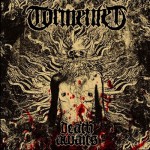 Tormented – Death Awaits: In 1992, the average death metal fan would walk 30 miles through the snow uphill both ways to hear a new Swedish death metal album. Sometime in the 2000s, Daniel Ekeroth made a handy video about how to get the Swedish guitar sound, and at least 4,096 hipster bands suddenly became Entombed-worship acts. The problem is that they don’t understand why Entombed did what Entombed did, so they’re imitating the appearance of Entombed and then injecting their own motivations into the art. Unforunately for them, their motivations are often what hipster bands want, which is ironic acclaim and something to brag about as they make coffees at the day job. Tormented is a perfect case in point. It’s competent, the riffs are gently melodic at times, and songs hold together thanks to a riff-chorus assembly with transitional riffs worked in. The problem is that these riffs express nothing, so they’re based on existing forms in a “pick one from column A, one from column B, one from column C” approach. This misses the point of death metal, which is to stich riffs together so that they tell a story that expands as the song goes on, then revert to a simplest possible reduction. What is revealed at the center of this music is an obsession with repetitive catchy vocals, and hard rock style relatively immobile riffs, instead of the soaring tremolo architectures that made Swedish death metal great. On the surface, this is pure Swede-worship; underneath, it has more in common with Wolfmother than Entombed.
Tormented – Death Awaits: In 1992, the average death metal fan would walk 30 miles through the snow uphill both ways to hear a new Swedish death metal album. Sometime in the 2000s, Daniel Ekeroth made a handy video about how to get the Swedish guitar sound, and at least 4,096 hipster bands suddenly became Entombed-worship acts. The problem is that they don’t understand why Entombed did what Entombed did, so they’re imitating the appearance of Entombed and then injecting their own motivations into the art. Unforunately for them, their motivations are often what hipster bands want, which is ironic acclaim and something to brag about as they make coffees at the day job. Tormented is a perfect case in point. It’s competent, the riffs are gently melodic at times, and songs hold together thanks to a riff-chorus assembly with transitional riffs worked in. The problem is that these riffs express nothing, so they’re based on existing forms in a “pick one from column A, one from column B, one from column C” approach. This misses the point of death metal, which is to stich riffs together so that they tell a story that expands as the song goes on, then revert to a simplest possible reduction. What is revealed at the center of this music is an obsession with repetitive catchy vocals, and hard rock style relatively immobile riffs, instead of the soaring tremolo architectures that made Swedish death metal great. On the surface, this is pure Swede-worship; underneath, it has more in common with Wolfmother than Entombed.
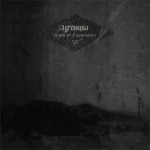 Agrimonia – Rites of Separation: It’s time we admit that post-metal is not metal, but new age metal. Or rather, it’s new age rock that wants to be metal so it can be “rebellious.” Officially rebellious, that is, so that if anyone claims they’re worshipping Satan or extremists, they can point to their soft juicy fruity core of new age everybody-kumbaya-happy. Post-metal not only takes influences from the new age movement and its desire for gentle ambience with some kind of quasi-spiritualist uplifting feeling that makes us feel like our rotting industrial dystopia encloses a paradise of personal emotional balance, positive thinking, etc. This music is like Sonic Youth throwing in some metal riffs and then droning on a note or two, with “bizarre” song structures that are actually very much in the verse-chorus with transitions style of post-punk bands. Nothing is badly done but the music has no soul. Its essence is in tossing out anything it thinks you might like, with no relationship between those parts. Thus it’s like hearing a conversation on the subway, where you pick up on juicy phrases and the rest is hubbub which fades into the ratcheting clack of the passing tracks.
Agrimonia – Rites of Separation: It’s time we admit that post-metal is not metal, but new age metal. Or rather, it’s new age rock that wants to be metal so it can be “rebellious.” Officially rebellious, that is, so that if anyone claims they’re worshipping Satan or extremists, they can point to their soft juicy fruity core of new age everybody-kumbaya-happy. Post-metal not only takes influences from the new age movement and its desire for gentle ambience with some kind of quasi-spiritualist uplifting feeling that makes us feel like our rotting industrial dystopia encloses a paradise of personal emotional balance, positive thinking, etc. This music is like Sonic Youth throwing in some metal riffs and then droning on a note or two, with “bizarre” song structures that are actually very much in the verse-chorus with transitions style of post-punk bands. Nothing is badly done but the music has no soul. Its essence is in tossing out anything it thinks you might like, with no relationship between those parts. Thus it’s like hearing a conversation on the subway, where you pick up on juicy phrases and the rest is hubbub which fades into the ratcheting clack of the passing tracks.
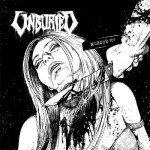
Unburied – Murder 101: Despite the prevalence of death metal vocals, these songs song more like old hardcore with a metal influence. They are extremely simple, with often only two riffs per song which repeat while vocals rant and bass pounds out a catchy rhythm. The rhythms behind these riffs are simple but compelling, and the riffs despite being digestible draw in the listener with a sense of an asymmetrical response in formation. Comparisons to a punchier version of old Master, Mortician or even Psychomancer would be appropriate. While the music is compelling in a very primitive sense, it requires a patience for things which do not change over prolonged periods of time, and a love for the gore-grind tendency to mash a rhythm down into its essence and then use its persistence as a source of power.
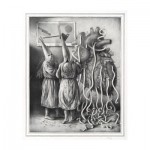
Altaar – Altaar: The first track of this album presents bass-driven slow droning doom metal which is carefully put together and, while simple and somewhat predictable in terms of chord progressions, nonetheless establishes and nurtures a dark mood. After that, some kind of late model hardcore/post-metal hybrid emerges, which features predictable ranty vocals and sessile riffs. At that point, most people tune out because they’ve heard this exact same stuff from a million bands, which explains why bands like it: it’s easy to produce, thus makes for high turnover of albums, more happy fans, more sales, etc. Ideally popular music is like this because you can hire a dozen people out of the back of any bar or pool hall, channel them into a studio, and have them pump out as much of it as you can sell. This style of music rewards obedience, because you have to learn music and then memorize what others have been doing and then imitate it. That makes for something that isn’t musically bad, but has nothing to distinguish it, and because it’s not about anything, it conveys no sense of experience other than standing there listening to the random riffs.
Tags: smr
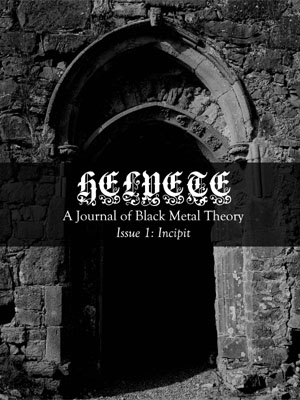 As part of the burgeoning movement to understand metal and how it relates to the world, comes the first issue of
As part of the burgeoning movement to understand metal and how it relates to the world, comes the first issue of 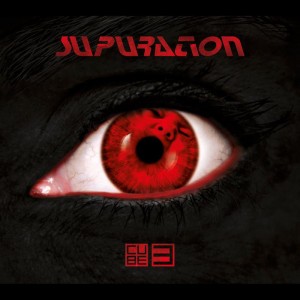 During the early 1990s, death metal was subject to criticism because people feared it. They would claim that the bands couldn’t play, or didn’t know their scales, or were otherwise incompetent.
During the early 1990s, death metal was subject to criticism because people feared it. They would claim that the bands couldn’t play, or didn’t know their scales, or were otherwise incompetent.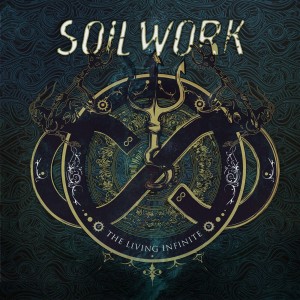 If you ever find yourself wondering why mainstream music produces so many professional and well-produced acts while metal seems pasted-together in comparison, worry no more: Soilwork has invented a new form of radio-friendly metal that competes with the big bands you can hear on the radio.
If you ever find yourself wondering why mainstream music produces so many professional and well-produced acts while metal seems pasted-together in comparison, worry no more: Soilwork has invented a new form of radio-friendly metal that competes with the big bands you can hear on the radio.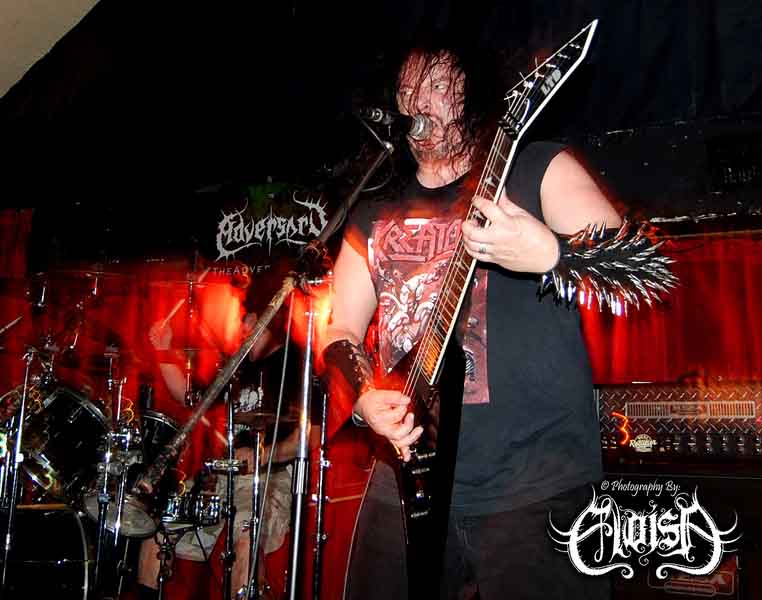 Tom Stevens has been providing technical extreme metal since the 80s. Known as a virtuoso on guitar and owning the distro/label Nokturnel Eclipse, he’s been a supporter of the old school since it began. Though Nokturnel has gone through numerous line-up changes, Stevens has defied odds and kept the flame burning with an indomitable urge to shred.
Tom Stevens has been providing technical extreme metal since the 80s. Known as a virtuoso on guitar and owning the distro/label Nokturnel Eclipse, he’s been a supporter of the old school since it began. Though Nokturnel has gone through numerous line-up changes, Stevens has defied odds and kept the flame burning with an indomitable urge to shred.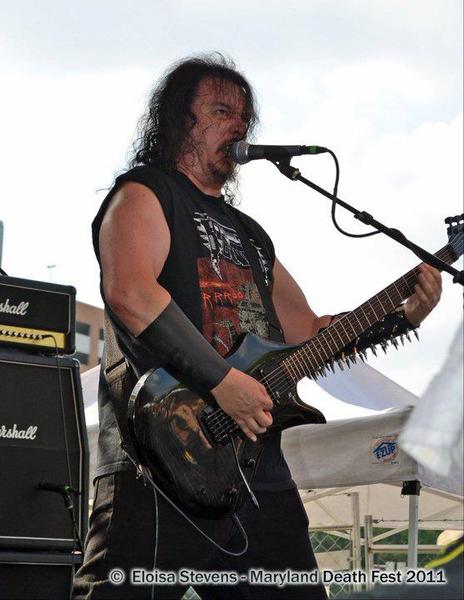 I haven’t heard much on Nokturnel since your last recording ‘Ancestral Calling’. What have you been up to?
I haven’t heard much on Nokturnel since your last recording ‘Ancestral Calling’. What have you been up to?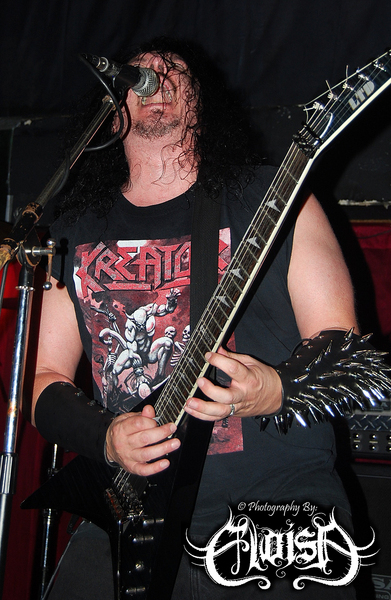 You played with Incantation for a while. What was it like touring with them? Any highlights that you’d like to share?
You played with Incantation for a while. What was it like touring with them? Any highlights that you’d like to share?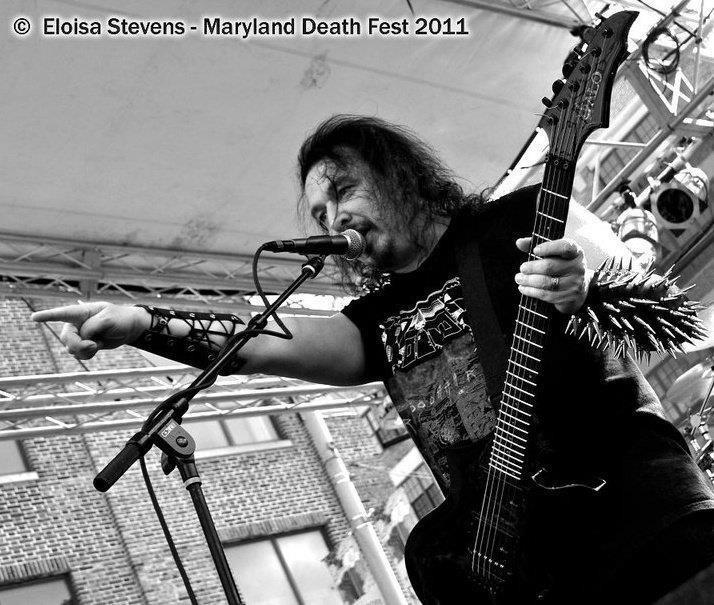 Please detail your contributions to Ripping Corpse. Are you still friends with Erik Rutan?
Please detail your contributions to Ripping Corpse. Are you still friends with Erik Rutan?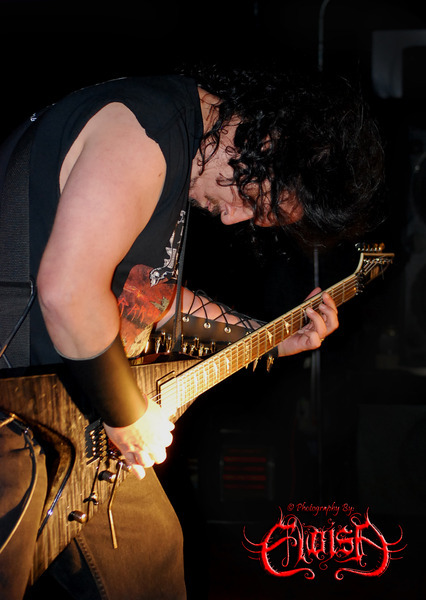 How long have you played guitar? You’re quite an amazing musician. What type of equipment, guitars, strings, etc do you use? What type of equipment would you recommend to new guitarists that are just starting out?
How long have you played guitar? You’re quite an amazing musician. What type of equipment, guitars, strings, etc do you use? What type of equipment would you recommend to new guitarists that are just starting out?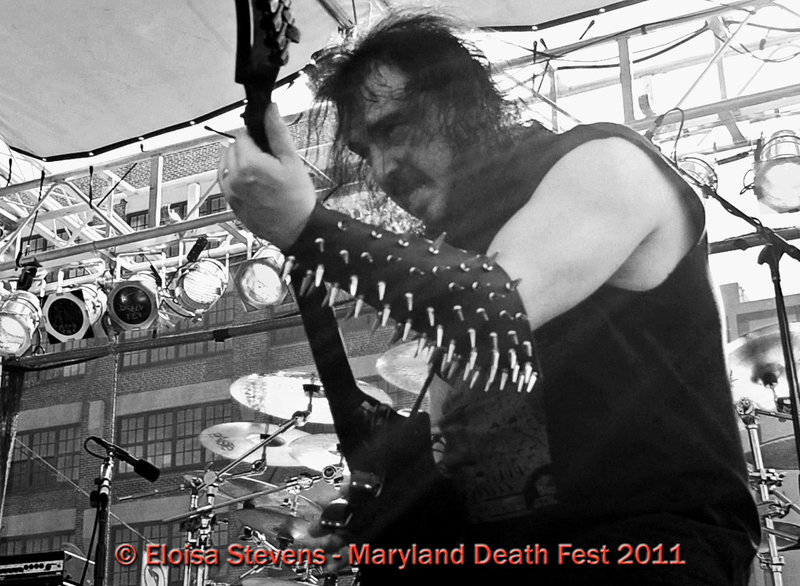 How well was the single “Ancestral Calling” received? What inspired you to write it? The riffs don’t seem to differentiate much, but the technical ability is amazing. How did you approach this song? What was your mindset? How will Nokturnel top this song in the future?
How well was the single “Ancestral Calling” received? What inspired you to write it? The riffs don’t seem to differentiate much, but the technical ability is amazing. How did you approach this song? What was your mindset? How will Nokturnel top this song in the future?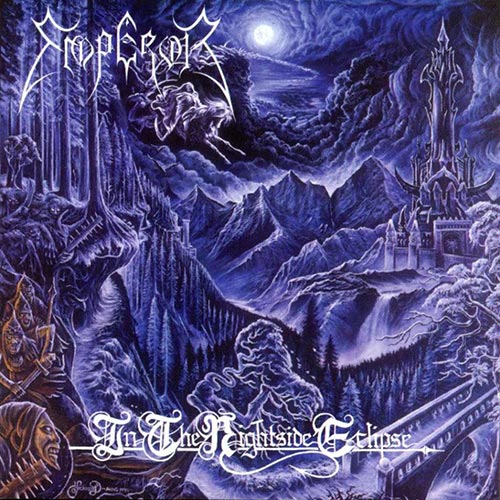
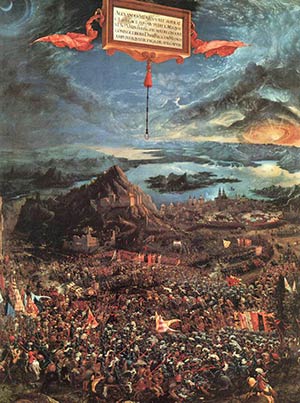 Some of its style and composition takes me back to Albrecht Altdorfer’s anachronistic oil painting The Battle of Alexander at Issus (1529), but true to the bleak genre of black metal the cover of ItNE is practically monochrome, which is rather typical of Wåhlin’s paintings at large (as seen in his paintings for
Some of its style and composition takes me back to Albrecht Altdorfer’s anachronistic oil painting The Battle of Alexander at Issus (1529), but true to the bleak genre of black metal the cover of ItNE is practically monochrome, which is rather typical of Wåhlin’s paintings at large (as seen in his paintings for 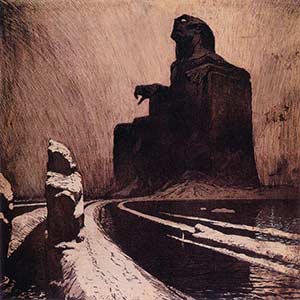 I always assumed that the otherworldly castle and the winding path leading to it were reminiscent of that of a certain bloodsucking count. This is probably no coincidence: have a look at the lyrics of the song Beyond the Great Vast Forest. Not only does it refer to Werner Herzog’s film Nosferatu (1979); parts of the story of the over-the-top film Bram Stoker’s Dracula (1992) – which was immensely popular around the time of ItNE’s inception – had also found its way into the lyrics, and the solitary structure of that film’s castle and its inspiration, František Kupka’s The Black Idol (1903), somewhat parallels the idea of the castle on display here.
I always assumed that the otherworldly castle and the winding path leading to it were reminiscent of that of a certain bloodsucking count. This is probably no coincidence: have a look at the lyrics of the song Beyond the Great Vast Forest. Not only does it refer to Werner Herzog’s film Nosferatu (1979); parts of the story of the over-the-top film Bram Stoker’s Dracula (1992) – which was immensely popular around the time of ItNE’s inception – had also found its way into the lyrics, and the solitary structure of that film’s castle and its inspiration, František Kupka’s The Black Idol (1903), somewhat parallels the idea of the castle on display here.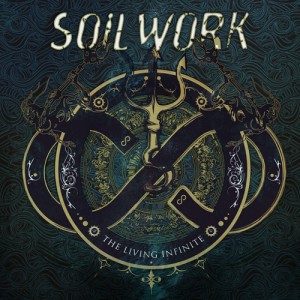 Modern metal-indie hybrid
Modern metal-indie hybrid 
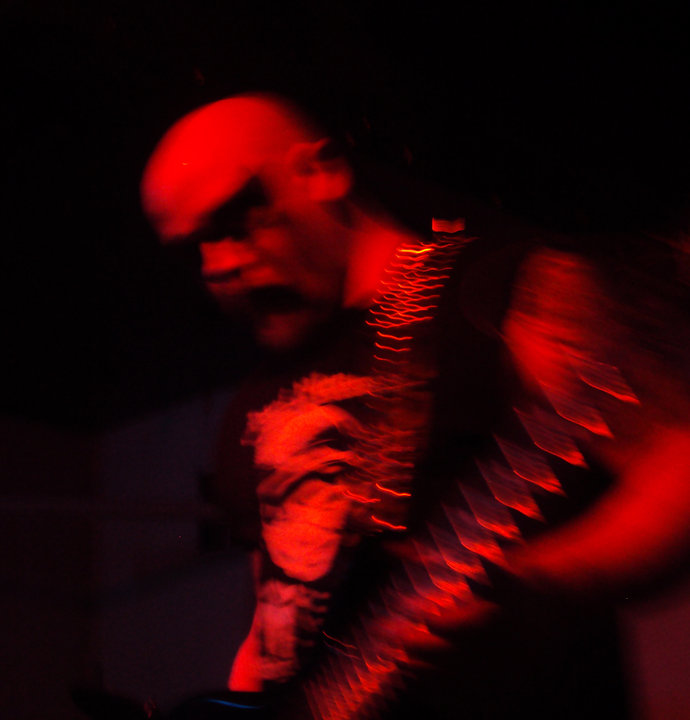 Oh for certain, there is a common theme along anything I do creatively and Nihilism is always at the heart of it. It’s hard to characterize my thoughts on Nihilism in a sense, since when you think of it as a concept, it’s hard to wrap your head around really overall as it is quite multi-faceted. Does Nihilism mean for some people that, anything goes? For certain it does, and does it also mean that you do not believe in one simple tangible thing? Possibly!
Oh for certain, there is a common theme along anything I do creatively and Nihilism is always at the heart of it. It’s hard to characterize my thoughts on Nihilism in a sense, since when you think of it as a concept, it’s hard to wrap your head around really overall as it is quite multi-faceted. Does Nihilism mean for some people that, anything goes? For certain it does, and does it also mean that you do not believe in one simple tangible thing? Possibly!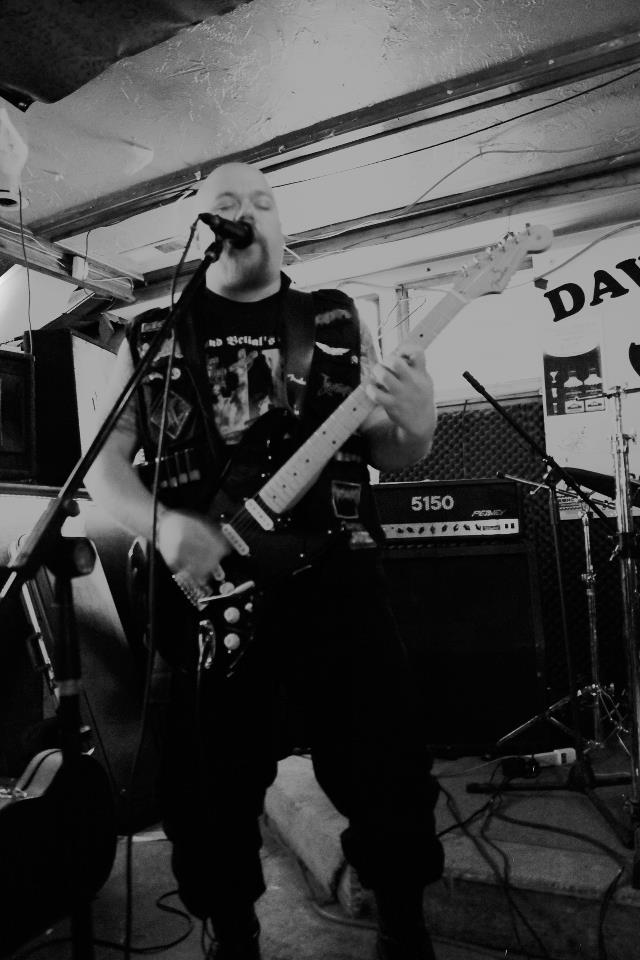 Your other band Iconoclast Contra is reminiscent of War Metal more than Black Metal. Which genre is it? How would you place in juxtaposition the themes displayed to your personal beliefs? Do you believe humanity is worthy of extinguishing through war? If so, why?
Your other band Iconoclast Contra is reminiscent of War Metal more than Black Metal. Which genre is it? How would you place in juxtaposition the themes displayed to your personal beliefs? Do you believe humanity is worthy of extinguishing through war? If so, why?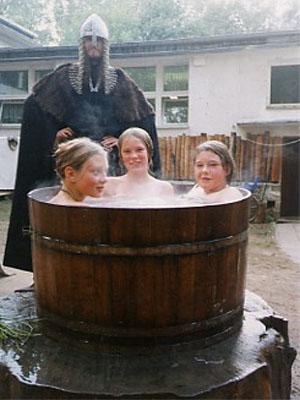 As reported by
As reported by 
